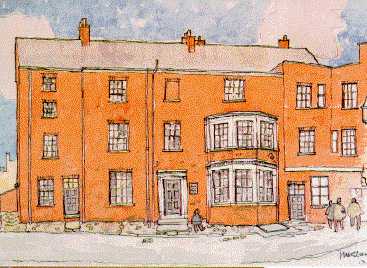
George Robert Gissing (1857-1903)
| Discussion List | E-texts | Hyper-Concordance |
Pierre.Coustillas, The Heroic Life of George Gissing, Part I: 1857-1888 (Pickering, 2011)
|

George Robert Gissing (1857-1903)
| Discussion List | E-texts | Hyper-Concordance |
Pierre.Coustillas, The Heroic Life of George Gissing, Part I: 1857-1888 (Pickering, 2011)
|
|
It is because nations tend to stupidity and baseness that mankind moves so slowly; it is because individuals have a capacity for better things that it moves at all. (The Private Papers of Henry Ryecroft, I, 16)
Strange how . . . I am possessed with the idea I shall not live much longer. Not a personal thought but is coloured by this conviction. I never look forward more than a year or two at the utmost, it is the habit of my mind, in utter sincerity, to expect no longer tenure of life than that. I don't know how this has come about; perhaps my absolute loneliness has something to do with it. Then I am haunted by the idea that I am consumptive; I never cough without putting a finger to my tongue, to see if there is a sign of blood. (George Gissing, Diary, June 1888) 
The Gissing's family home Strange thing that I, all of whose joys and sorrows come from excess of individuality, should be remarkable among men for my yieldingness to everyone and anyone in daily affairs. No man I ever met habitually sacrifices his own pleasures, habits, intentions to those of a companion, purely out of fear to annoy the latter. It must be a sign of extreme weakness, and it makes me the slave of men unspeakably inferior. (George Gissing, Diary, October 1888) A Brief BiographyGISSING, George Robert (1857-1903)novelist; left Owens College, Manchester, in disgrace for America, where he wandered penniless until 1877; studied literature and philosophy at Jena; returned to England, 1878; published Workers in the Dawn (1880); found an appreciative reader in Frederic Harrison, to whose sons he became tutor, 1882; gained precarious livelihood by occasional journalism; published The Unclassed; (1884), Demos (1886), and other novels illustrating degrading effects of poverty on character; visited Naples, Rome, and Athens; published A Life's Morning (1888), The Nether World (1889), The Emancipated (1890), New Grub Street (1891), Born in Exile (1892), and The Odd Women (1893); revisited Italy with H. G. Wells, 1897, recording some experiences and impressions in By the Ionian Sea (1901); in Rome he found material for historical romance Veranilda (published posthumously, 1907); on return to England wrote The Town Traveller (1898) and Our Friend the Charlatan (1901); died of pneumonia at St Jean-de-Luz; other workd include critical study of Charles Dickens (1898), and The House of Cobwebs (1906). * The Concise Dictionary of National Biography Some of his conclusions were conservative, but at heart he was a late-Victorian rebel against the power of convention. His rebellion was muted because he was preoccupied with failure. He had collected as great a store of specialized information about people who failed as Samuel Smiles had collected of people who succeeded. (Asa Briggs, Victorian Cities)
Gissing in Cyberspace was launched on 22 November 1995.
 Top of Page Top of Page
 Mitsuharu Matsuoka's Home Page Mitsuharu Matsuoka's Home Page 
|